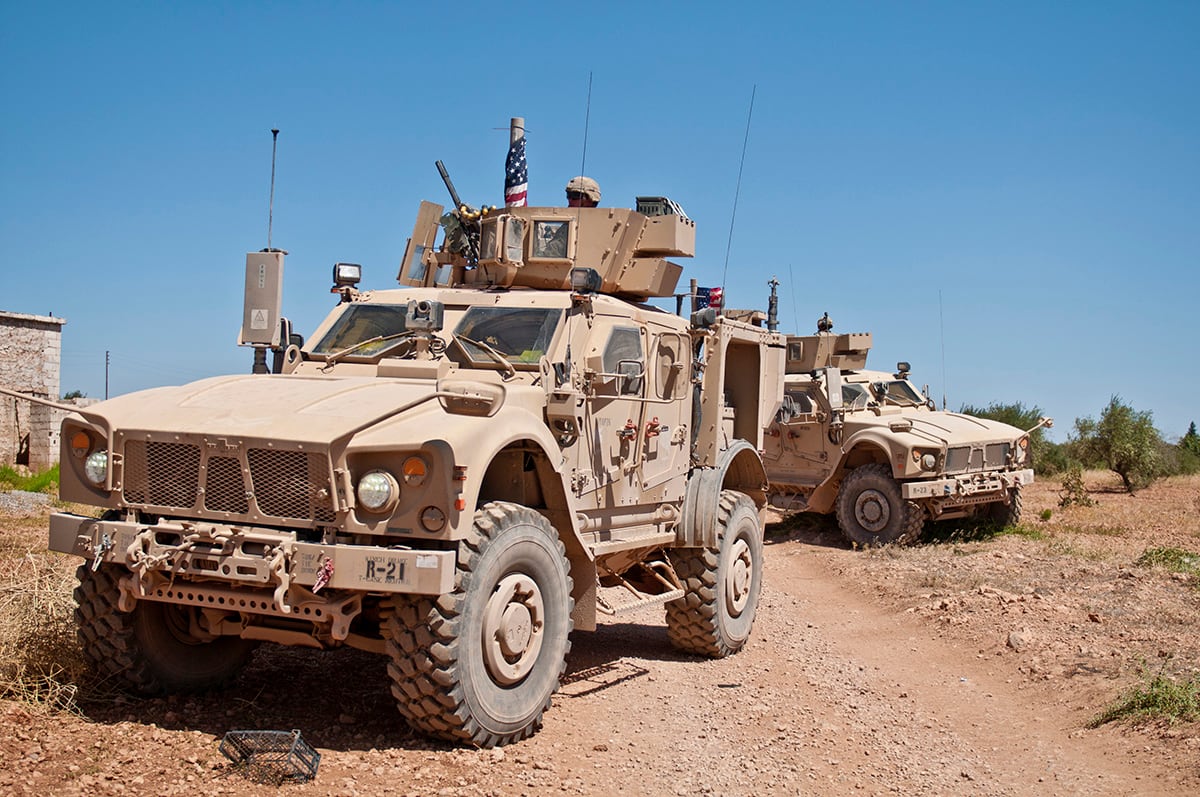The Islamic State’s once-grand and terrorizing hold of Syria is down to just a small patch of land about 20 miles by six miles along the Euphrates River and is expected to fall within just a few months, a top French commander involved in operations there said Tuesday.
“We hope that the last combat will go quickly,” said French Brig. Gen. Frederic Parisot, director of civil military operations for Combined Joint Task Force-Operation Inherent Resolve. Parisot said there are a few hundred fighters remaining in Syria that the coalition is still fighting.
“We still are in the fight, for at least two to three months, and then obviously there will be more decisions,” Parisot said.
The remaining ISIS fighters are located on a strip of land between the Syrian cities of Abu Kamal along the Iraqi border and Hajin, on the Euphrates River.
We “expect to have a tough fight in the last place that ISIS is. But the good thing is they are trapped,” Parisot said. “The Iraqis are doing a very good job to ensure they cannot leave on the east side of the area and we hope that the regime and the Russians will do the same on the southern side.”
Even if the threat from ISIS is falling off, risk of escalation is increasing between the Iranian and Russian forces supporting Syrian president Bashar Assad, U.S.-backed rebels and Israel that could spill into a larger fight.
Israel, which shares a small part of its border with Syria, has demanded that all Iranian forces in Syria depart and rejected a Russian offer to guarantee Iranian forces would come no closer than 60 miles from the Israeli border.
On Tuesday, Israel announced it had shot down a Syrian fighter jet that had crossed into its airspace. Two Patriot missiles were fired at the Sukhoi fighter; the fate of the two pilots was not immediately known.
The U.S. has repeatedly said it is only in Syria to fight ISIS, however last week National Security Adviser John Bolton suggested U.S. troops would stay in country to stem Iranian influence.
Syrian forces have operated along with Russian-backed forces and proxies to protect Syrian president Bashar Assad. President Donald Trump acknowledged he discussed Syria privately with Russian president Vladimir Putin during his Helsinki summit last week but to date no details have surfaced as to what operational impact that may have on U.S. and coalition forces there.
Tara Copp is a Pentagon correspondent for the Associated Press. She was previously Pentagon bureau chief for Sightline Media Group.




